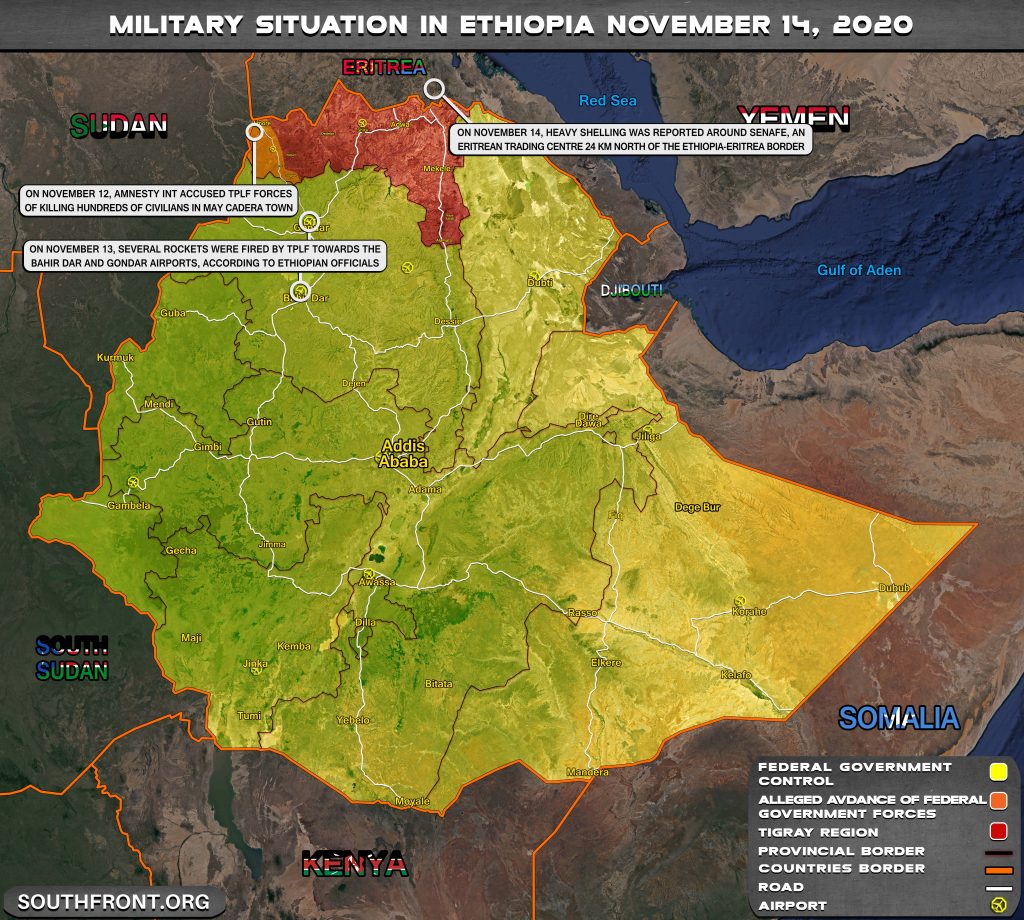The MiG-23 is a variable geometry fighter aircraft, designed by the Mikoyan-Gurevich design bureau in the Soviet Union.
It is a third-generation jet fighter, the world’s most-produced variable-geometry aircraft.
It was the first Soviet fighter to field a look-down/shoot-down radar and one of the first to be armed with beyond-visual-range missiles.
Production started in 1969 and reached large numbers with over 5,000 aircraft built, making it the most produced variable-sweep wing aircraft in history.
Other than that, the aircraft is in widespread use in Eastern Europe and the Middle East. The MiG-23 series of aircraft has been used extensively by the former Soviet Union and its Warsaw Pact allies including Poland, Hungary, Bulgaria, East Germany, Rumania, and Czechoslovakia.
Other countries including Libya, Syria, Egypt, India, Cuba, Algeria, Iraq, Afghanistan and North Korea have imported such fighter jets.
Meant as a point defense fighter, the MiG-23 offers a powerful radar, an infrared search and track system, a selection of radar and infrared guided weapons and tremendous speed (Mach 2.35) to counter its adversaries.
The wings are high-mounted, variable, swept-back, and tapered with blunt tips. There is one turbofan engine inside the body. There are rectangular, box-like air intakes forward of the wing roots and a single exhaust. The fuselage is long and tubular, except where intakes give a box-like appearance. It has a long, pointed nose and a stepped canopy.
There is a large, swept-back, and tapered belly fin under the rear section. The tail is swept-back, has a tapered tail fin, has a curved dorsal in the leading edge and an angular tip. Swept-back, tapered flats have angular tips and are high-mounted on the fuselage.
The MiG-23’s standard armament is a twin-barreled 23mm Gryazev-Shipunov GSh-23L cannon with 200 to 260 projectile rounds mounted in a GP-9 gun pack under the fuselage.
Six total hardpoints allowed for up to 6,600lbs of external stores. Hardpoints included two fuselage stations, two underwing “glove” stations and two underwing pylons for the fitting of various air-to-air missile systems. Cleared missile systems eventually included the AA-7 “Apex”, AA-8 “Aphid”, AA-10 “Alamo”, AA-11 “Archer” and AA-12 “Adder” missiles of differing seeker heads and engagement range. A typical interceptor loadout became 2 x AA-7 “Apex” radar/infra-red and 2 x AA-8 “Aphid” short-range infrared missile assortments. In 1974, “double pylons” – fitting two missiles to one weapon station – were fitted for increased loadouts.
Currently, only a handful of countries still operate the MiG-23, Ethiopia is one of them. According to media reports, the Armed Forces are currently using the MiG-23BN fighter bomber variant of the warplane against the Tigray People’s Liberation Front (TPLF) in the civil war for control over the Tigray region.
The video below shows the MIG-23BN jet in service with the Ethiopian Air Force:
https://twitter.com/africaken1/status/1126913087402123264
MORE ON THE TOPIC:








The photos of the aircraft in this article are of the MiG 23 MF, which I can absolutely guarantee you is not being used by the Ethiopian air force to attack ground targets in Tigray because it’s a dedicated air defence interceptor. The version that the Ethiopian air force is using can only be the MiG 23 BN, with a drastically different sloped nose similar to the MiG 27.
Greetings, thank you for the feedback. The article is updated.
Best regards,
SF Team
https://www.youtube.com/watch?v=hoJ0qV08VjU
Did you get the Yankee Doodle Pigeon yet?
The conflict is already escalating to Eritrea, conveniently opposite Yemen on the Red Sea It’s only a matter of time before Sultan Erdogan sends jihadis over.
I Thought the same way when I looked at the religious map of Ethiopia.
Afwerki isn’t fond of headchoppers. He’ll give them a very, very warm welcome. Incandescent.